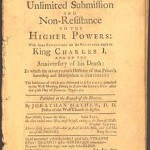posted by Writer on Mar 12
 Uzziah was one of Judah’s better kings because he followed God’s law, built up Israel’s defenses, and with the help of others, devised a new method of warfare (2 Chronicles 26:14-15).
Uzziah was one of Judah’s better kings because he followed God’s law, built up Israel’s defenses, and with the help of others, devised a new method of warfare (2 Chronicles 26:14-15).
God blessed him immensely (2 Chronicles 26:6, 8-10, 11-13). However, the fame went to his head which cost him because; “When he was strong, his heart was lifted up to his destruction” (2 Chronicles 26:16).
Imitating heathen kings of that day, Uzziah believed he had the right to represent the people before God by burning incense.
What he did was seize power illegally, but was confronted by 81 priests who challenged his authority to do this. Scripture commends them by calling them valiant, something reserved for those displaying heroism in battle. And I’m sure they were in imminent danger, because the king could have lopped their heads off instantly.
Uzziah’s ego was so massive that he became enraged the priests had the audacity to confront him. God immediately stepped in, and backed his men by sending swift judgment, striking Uzziah with leprosy which forced him to live out his days in seclusion.
Under the Law, the duties of the king and priests were separate (Numbers 3:5-10), and only the priests were permitted to conduct religious ceremonies.
The government, Uzziah in this case, did not respect the boundaries God set up and (in essence), told the religious leaders how they were going to worship.
There was a time in days gone by when pastors called out the government when it became too oppressive. I had hope to see a resurgence of this in our days, but I’m not certain I ever will.
For many years now, the government has intruded into every aspect of our lives, including how we worship.
Like Uzziah, they have usurped power not rightfully theirs. The Declaration of Independence clearly states our nation would be governed according to the Word of God (The Laws of Nature and of Natures God). In addition to that, the Bill of Rights, (especially the First Ten Amendments), tell us what government cannot do, while the Constitution outlines what they’re permitted to do.
However, it’s important to keep in mind the that government has limited, specific powers, called ‘enumerated powers’.
Somewhere down the line this generation bought the lie that the government ‘was all things to all people’.
Jonathan Mayhew, one of the more liberal preachers of the Founding Era would disagree; “The king (or the president, congress and the courts today) is as much bound by his oath not to infringe on the legal rights of the people, as the people are bound to yield subjection to him….as soon as the prince sets himself up above the law, he loses the king in the tyrant. He does, to all intents and purposes, un-king himself by acting out of and beyond that sphere which the constitution allows him to move in, and in such cases he has no more right to be obeyed than any inferior officer who acts beyonds his commission…the subject’s obligation to allegiance then ceases…and to resist him is no more rebellion than to resist any foreign invader…” (1)
himself up above the law, he loses the king in the tyrant. He does, to all intents and purposes, un-king himself by acting out of and beyond that sphere which the constitution allows him to move in, and in such cases he has no more right to be obeyed than any inferior officer who acts beyonds his commission…the subject’s obligation to allegiance then ceases…and to resist him is no more rebellion than to resist any foreign invader…” (1)
The Founders also knew the true nature of people, that it was corrupt and selfish, because they knew scripture. That’s why they gave us three branches of government, or separation of powers, which also come for scripture (See Isaiah 33:22).
See how things back then apply to our day?
(1) The Light and the Glory, by Peter Marshall and David Manuel, p. 264-265
March 13th, 2014 at 8:40 am
What an analogy! Great post. Uzziah may have mistakenly justified his actions by the fact he was married to the daughter of the high priest. Nevertheless he was terribly wrong. Today’s leaders in all branches are grossly guilty, by usurpation and acquiescence, as suits them.
March 13th, 2014 at 10:49 am
Yes, they most certainly do apply. But if Pastor’s ….. and fellow believers …. will not even address ‘sin in the camp’, why would we ever believe that they would be courageous enough to address our government?
It is my personal sense that the reason we have a renegade government, is because we have a renegade people warming the pews of our churches.
Oh Lord GOD! When will You rend the heavens and come down to restore Your people to our first love; to the holiness and purity we were called to when You paid so high a cost to Redeem us? When, oh Lord?